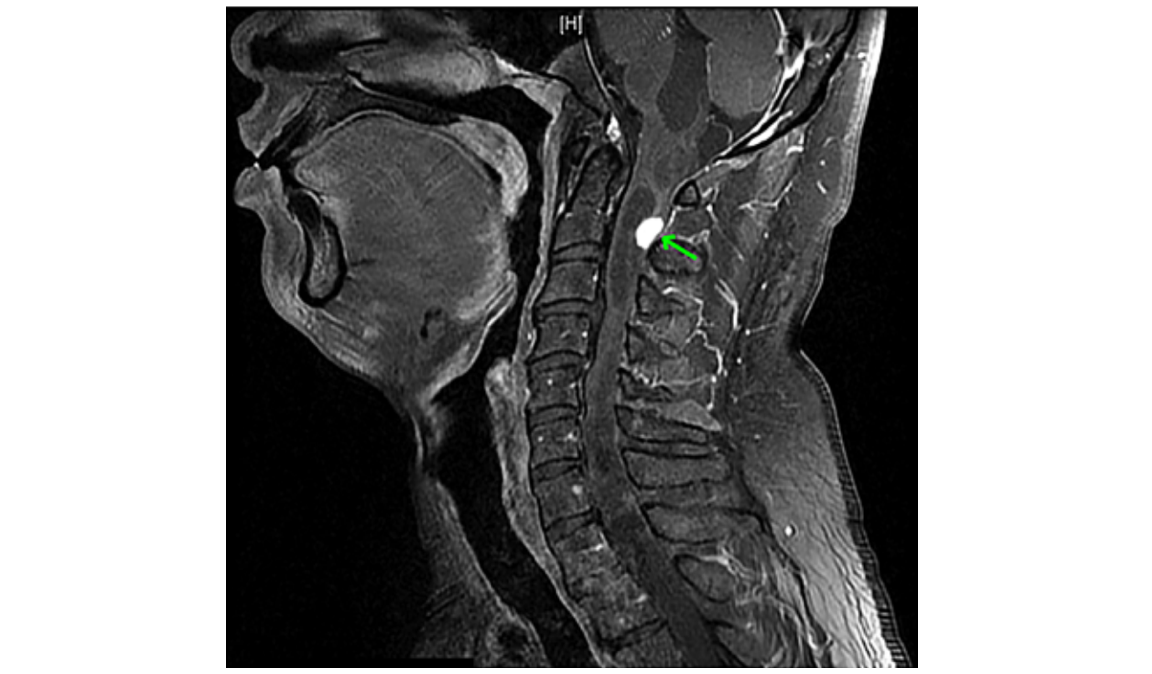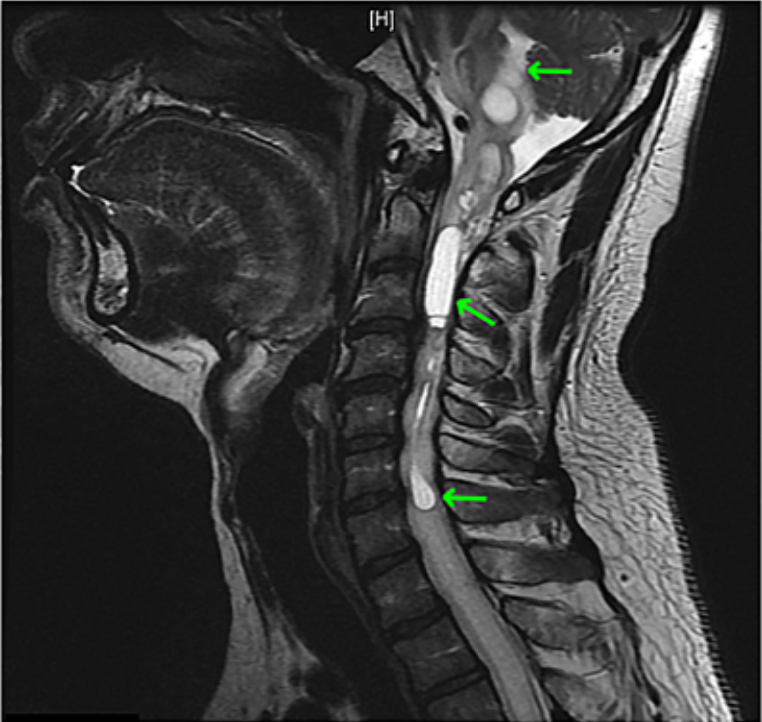Man's Persistent Hiccups Were Caused by Large Tumor

A man who suffered three bouts of persistent hiccups, lasting a few days each, over the span of one month finally learned the true reason for his health problems — a large tumor in the back of his neck, a new case report reveals.
The case was unusual because it's fairly uncommon for the cause of such long-lasting hiccups to turn out to be a tumor, said Dr. Mark Goldin, an internal medicine hospitalist at Long Island Jewish Medical Center in New Hyde Park, New York, and a co-author of the case report, published online Jan. 28 in the journal BMJ Case Reports.
The reason the man had intractable hiccups — which are hiccups lasting longer than two days — was that his tumor was compressing his phrenic nerve, which is the neural pathway that goes to the diaphragm, the muscle just below the lungs that is involved in controlling breathing. The nerve was sending disturbed signals to the diaphragm, causing the muscle to contract involuntarily, leading to the hiccups, Goldin said.
Anything that can irritate the phrenic nerve, including certain infections and medications, might trigger a bout of persistent hiccups, he said. [15 Weird Things Humans Do Every Day]
According to the case report, the first two bouts of the persistent hiccups were annoying to the 35-year-old man, but both times when he went to the hospital, he did not have any other symptoms that alarmed the doctors, Goldin said. The man was given a medication to ease his hiccups, and although it didn't seem to provide any relief, the hiccups eventually stopped.
But in the third episode that struck during that month in the fall of 2014, by the time the man came to the emergency room, he had been hiccuping and vomiting for five days.
The man was also experiencing tingling and numbness in his left arm. However, he thought the symptoms were due to an old injury — a slipped disc in his neck — and did not suspect they were connected to his hiccups. But doctors would soon discover the cause of these seemingly disconnected symptoms, and that cause did not involve the slipped disc.
Get the world’s most fascinating discoveries delivered straight to your inbox.
Tumor discovered
Within a few hours of getting to the hospital, the man started to have other neurological signs that were getting worse, Goldin told Live Science. He developed weakness, tingling and numbness in his legs, and he also had trouble walking, swallowing and maintaining his balance.
By this point, doctors knew that something deeper was going on, Goldin said, so they ordered an MRI of his brain and spinal cord.
These images showed that he had "a large and complex tumor" known as a hemangioblastoma, Goldin said.
The tumor was compressing the majority of nerve roots leading to the neck region of the man's spinal cord, Goldin said.
Neurosurgeons successfully removed the entire tumor, which cured the man, Goldin said.
The man had no family history of this type of tumor, and this is not a type that typically comes back, Goldin said. He credited his case report co-author Zachary Hahn, who was a third-year medical student working on the case, for picking up on the signs and symptoms in the man that led down the path of diagnosing his tumor.
One day after the man's surgery, he received both physical therapy and occupational therapy; and four days after it, he left the hospital. Since then, the man has had frequent MRIs, and none of them have showed any signs of the tumor recurring. [16 Oddest Medical Cases]
Goldin said he last saw the man a few months ago and that he has not had any symptoms and is back to his usual activities.
Cases of intractable hiccups should always be a cause for concern, Goldin said. "Even when they occur in a healthy person, there has to be an underlying cause for them," he said.
Follow Live Science @livescience, Facebook & Google+. Originally published on Live Science.
Cari Nierenberg has been writing about health and wellness topics for online news outlets and print publications for more than two decades. Her work has been published by Live Science, The Washington Post, WebMD, Scientific American, among others. She has a Bachelor of Science degree in nutrition from Cornell University and a Master of Science degree in Nutrition and Communication from Boston University.
 Live Science Plus
Live Science Plus






